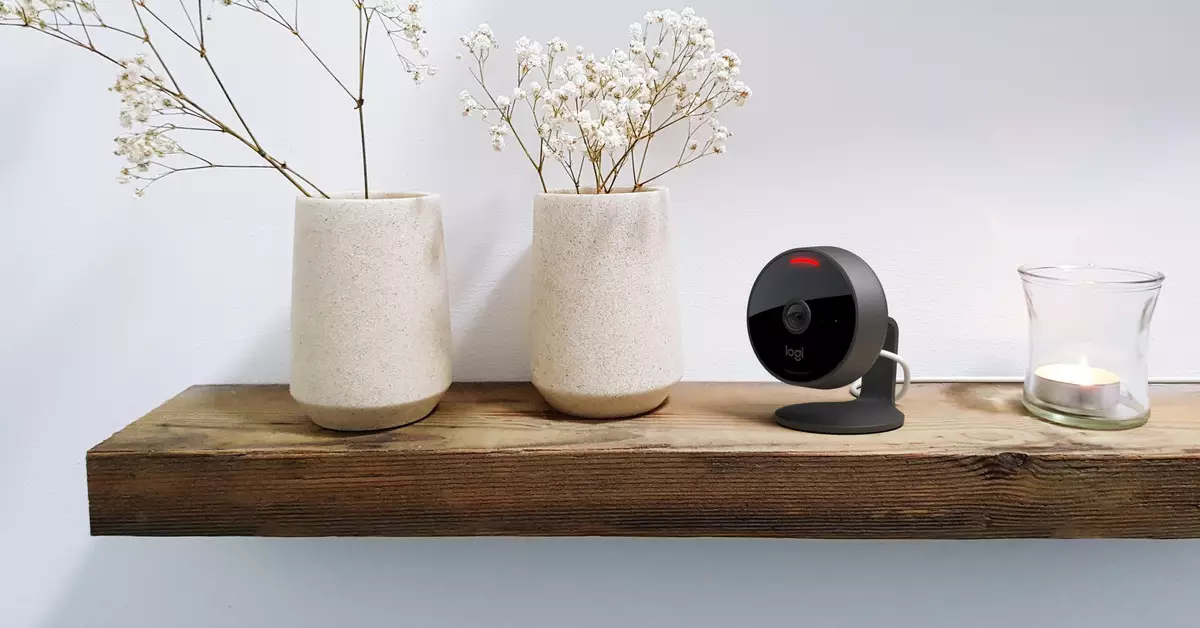The smart home ecosystem is undergoing a significant transformation, and Apple’s impending foray into the security camera sector promises to reshape the competitive landscape. With a report from supply-chain analyst Ming-Chi Kuo suggesting that Apple is set to initiate production of a smart home IP camera in 2026, excitement is building around the implications of this development. This move not only marks Apple’s entry into a lucrative market but also sets the stage for a new phase of integration within the company’s extensive ecosystem of hardware and services.
As smart home devices gain traction among consumers, the demand for security cameras has emerged as a dominant trend. Recognized as one of the fastest-growing categories, security cameras offer homeowners peace of mind and a myriad of practical uses that extend beyond mere surveillance. As the average household increasingly emphasizes safety and connectivity, Apple’s decision to venture into this space could be its most strategically sound move yet. By incorporating a versatile array of features into its forthcoming camera, Apple positions itself to challenge established rivals such as Amazon and Google, both of whom have made significant strides in this domain.
Having already integrated generative AI into their security offerings—with Amazon’s Ring launching AI-driven features and Google enhancing its Nest cameras with Gemini technology—Apple’s entry is not merely about catching up. The potential for Apple to reimagine the security camera as an integral part of a smart home ecosystem goes beyond traditional monitoring. Leveraging its expertise in artificial intelligence, Apple could offer innovative functionalities that allow users to identify individuals at their door or respond to unusual activities in real-time, effectively transforming home security into a more intelligent and responsive service.
The prospect of an Apple smart security camera raises compelling questions about the nature of its integration capabilities with existing Apple products. Kuo emphasizes that this camera would seamlessly connect with other Apple devices—suggesting a design that prioritizes smooth, wireless interactions. Consider the benefits for users who already own devices like the HomePod or Apple TV: these gadgets could serve as a hub for monitoring security footage, while facilitating features such as live streaming and notifications tailored to user preferences.
Moreover, Apple’s existing HomeKit Secure Video service allows for significant revenue streams through subscription models, indicating that the company is not merely selling hardware but fostering a sustainable revenue ecosystem. With plans to support additional functionalities in the future, such as video analysis and event-triggered alerts, Apple could enhance its users’ experiences while solidifying brand loyalty through tightly integrated services.
Despite Apple’s long-standing association with premium hardware and software, its slow progression into the smart home sector raises intriguing questions about its competitive strategies. Its competitors, namely Ring, Arlo, and Blink, have already established robust ecosystems that include their own subscription services for video storage and personalized alerts. Here, we find a pivotal moment for Apple to differentiate its offerings. Ensuring compatibility with the evolving Matter standard—an initiative designed to improve interoperability among smart home devices—is crucial. Matter’s potential support for security cameras could enhance accessibility, especially for users who wish to integrate various devices within their homes seamlessly.
As this new standard becomes more mainstream, Apple’s adoption and support could be a major strength, allowing it to expand its ecosystem while embracing devices from other manufacturers. This bodes well for consumers, providing them with a broader selection of products that can interconnect, making the overall smart home experience more user-friendly.
While speculation about the specifications and types of cameras Apple may introduce continues, one thing is clear: the smart home landscape is evolving. The focus on security cameras not only becomes a means to protect physical spaces but also elevates the entire smart home experience by providing valuable insights into daily life within the home. As Apple readies itself for this launch, questions about whether it will introduce an indoor or outdoor camera, or even a video doorbell, remain. However, as it stands at the intersection of consumer needs, innovative technology, and a robust infrastructure, it indeed seems poised to make a game-changing entry into the market.
Apple’s leap into smart home security with an anticipated camera could redefine home safety, establishing new standards for user engagement and device connectivity. Given the strength of its existing product lineup and future potential, the company can leverage its brand loyalty to carve a significant niche in a crowded market, ensuring that security in the smart home is not a luxury—it is a standard.


Leave a Reply